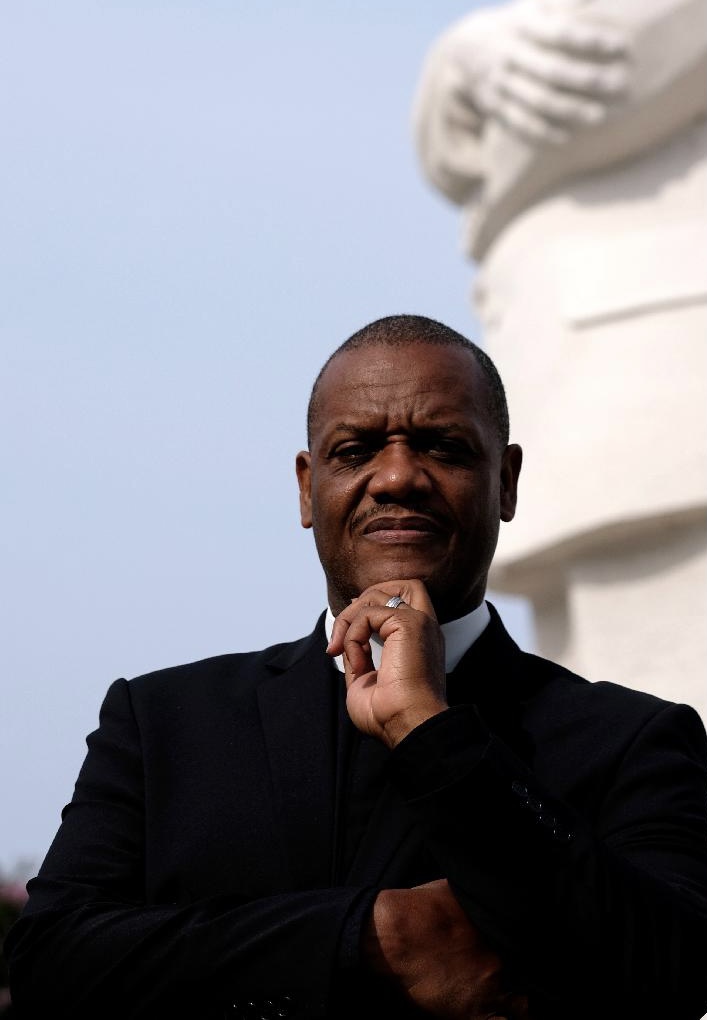By Dr. Timothy E. Tyler

The film Six Triple Eight stands as a testament to the extraordinary contributions of African American women during World War II, shining a well-deserved spotlight on the life and achievements of Charity Adams, a remarkable figure whose legacy continues to inspire. Charity Adams, the daughter of a retired general officer and the sister of a bishop, has long been a beacon of faith, service, and leadership. As we celebrate her story through Six Triple Eight, we are reminded not only of her individual accomplishments but also of the pivotal role of the African Methodist Episcopal (AME) Church and its leadership in shaping the course of history.
Charity Adams was born into a family that understood the importance of service, discipline, and faith. Her father, AME Retired General Officer Eugene Adams, was an AME Preacher who served the Church with distinction, while her younger brother, The Right Reverend John Hurst Adams, rose to prominence as an episcopal leader in the AME Church. This blend of church leadership and spiritual devotion profoundly shaped Charity’s character, preparing her for a life of service to both her country and her faith.
During World War II, Charity Adams made history as the first African American woman to lead a company in the Women’s Army Auxiliary Corps (WAAC), later known as the Women’s Army Corps (WAC). As the commanding officer of the 6888th Central Postal Directory Battalion, she led 855 African American women in a vital task—sorting and delivering mail to U.S. soldiers overseas. Despite facing racial and gender discrimination, Adams’ leadership was unwavering, and under her command, the 6888th Battalion became one of the most successful and impactful units in the war effort.
Her story is one of resilience, courage, and excellence in the face of adversity. Six Triple Eight honors her achievements, portraying not only her military leadership but also the spiritual foundation that guided her actions. Through this film, the world is reminded of the contributions of African American women to the war effort—contributions that were long overlooked and underappreciated. Charity Adams’ story is, in many ways, a tribute to the values instilled in her by her family—values that continue to resonate within the broader context of African American history.
Likewise, The AME Church, formally organized by Richard Allen in 1886, has always been a champion of social justice, education, and empowerment. From its earliest days, the church served as a refuge for African Americans seeking spiritual peace and a platform for political and social activism. Leaders within the AME Church have historically been at the forefront of advocating for civil rights, education, and equality, standing as powerful voices in the fight for justice.
Charity Adams, through her family’s legacy, was a product of this rich tradition. Her father and her brother’s ecclesiastical leadership were inextricably linked to the AME Church’s broader mission. The church provided the spiritual foundation for the Adams family and affirmed the importance of community service and leadership in the world.
However, as we celebrate the achievements of leaders like Charity Adams, it is equally important to recognize the growing need for the AME Church to regain its place on the world stage. The AME Church’s historical commitment to justice, equality, and leadership must be more than a part of the past; it must be a driving force for the future.
The world today faces many challenges—racial and economic inequality, political unrest, and the ongoing struggle for human dignity. As these global issues unfold, the AME Church must step forward, bringing its long history of advocacy, community service, and faith-based leadership into the contemporary conversation.
The leadership of the AME Church, particularly those in positions of influence like bishops and pastors, and leading lay persons, must be intentional about reclaiming the church’s voice on the world stage. The world needs spiritual leaders who can speak truth to power, offer guidance in times of crisis, and lead with compassion and courage. Just as Charity Adams led with resolve and grace during one of the most tumultuous times in modern history, so too must the AME Church rise to meet the needs of the present moment.
Moreover, the AME Church’s commitment to education and empowerment can play a pivotal role in addressing the systemic issues facing marginalized communities worldwide. The church’s historical emphasis on education, exemplified by figures like Charity Adams, can provide a blueprint for combating illiteracy, poverty, and social inequities in both the United States and abroad.
In celebrating Six Triple Eight and the life of Charity Adams, we honor not only her achievements but also the broader legacy of the AME Church and its leaders. The AME Church has always been a source of strength and guidance for African Americans, and it is time for that legacy to be more visible on the world stage.
As we look ahead, let us draw inspiration from the story of Charity Adams—her courage, leadership, and unwavering faith—and let it propel us forward into a new era of service, justice, and advocacy. The AME Church’s mission to lead with faith, to speak out for justice, and to serve those in need is just as critical today as it was during the time of Charity Adams.
In the words of Charity Adams herself, “We did what had to be done.” And just as she did, we, too must rise to meet the challenges of our time. The AME Church, with its rich history of leadership, must once again answer the call to lead—not just within our communities but on the global stage.





